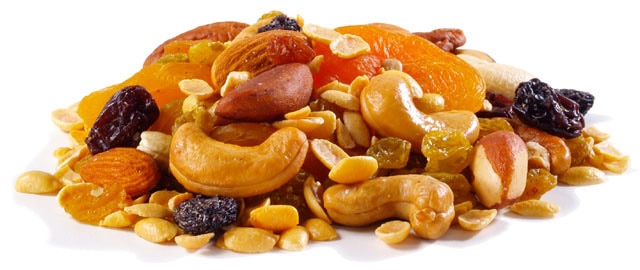Get the Skinny on Organics
More and more people are choosing to go organic these days, citing environmental and health concerns. As the demand expands, so has the number of organic items available in stores and online. But if you’re contemplating switching to organic foods, you may be left with a simple question: What exactly does that organic label mean?
Organic foods are items that are grown or raised without unnatural pesticides, weed killers, chemical fertilizers or synthetic drugs. Organic farmers use natural substances to grow their crops and ward off insects. All foods that carry the organic label in the United States come from a farm that has been inspected by a government official. These farms must meet stringent standards and undergo rigorous (and expensive) licensing tests, so you can rest assured that they offer organics that are up to snuff.
Though fresh fruits and vegetables may be the most noticeable organic foods in stores these days, pretty much any edible item (including animal products) can be organic. Organic meat, eggs and dairy products come from animals that consume organic feed and are not treated with antibiotics or growth hormones.
Because organic food production does not leach chemicals into the soil, it is better for the planet than traditional farming. Organic items generally come from smaller farms because the process is so much more labor-intensive, a fact that helps conserve both land viability and water supplies.
Some people also believe that organic products are better for your health. It is true that even when they’re washed, non-organic produce items still contain trace amounts of pesticides. These pesticides can cause harm in large doses, but studies haven’t definitively shown whether the small amounts found in non-organic food items affect humans negatively. However, if you do decide that you’d like to reduce or eliminate those type of chemicals from your diet, going organic will certainly ensure that they won’t sneak in. Because organic items do not contain the same preservatives, they also tend to be fresher and may offer more nutrients in some cases.
It is true that organic food can be costly; this is because organics are more expensive to produce. Growing organics requires more manpower and attention. Because organic farms tend to be on the small side, they may not qualify for financial help from the government that helps larger, non-organic producers keep the prices down. You can stretch your organics budget by focusing your efforts on the fruits and vegetables that tend to have the highest pesticide levels: apples, bell peppers, peaches, celery, cherries, kale, nectarines, strawberries, lettuce, grapes, pears and carrots.

Want to make the switch? It’s OK to take it easy at first! If you’re concerned about quick-spoiling fresh produce, start off by trying out some organic dried fruit and organic nuts. Dried organic mango is a sweet treat with a mellow flavor, and organic mixed nuts offer variety. Organic trail mix is great for munchers on the go!
You can also mix up a batch of custom organic trail mix by combining your favorite varieties of dried fruit and nuts. A mixture of dried blueberries, dried cherries, banana chips and macadamia nuts offers a great combination of sweetness and crunch that can’t be beat!
